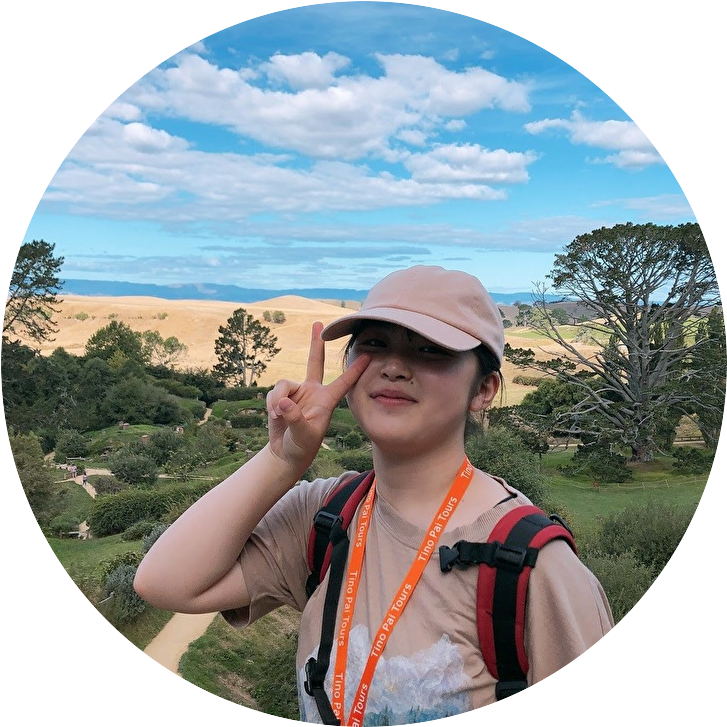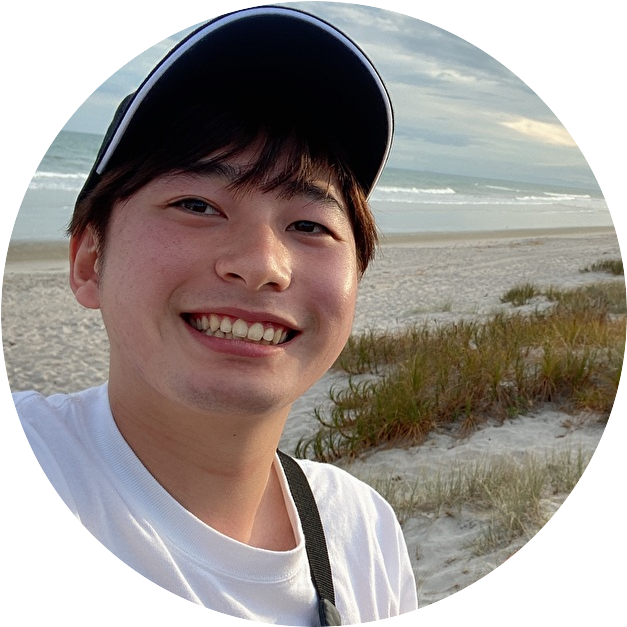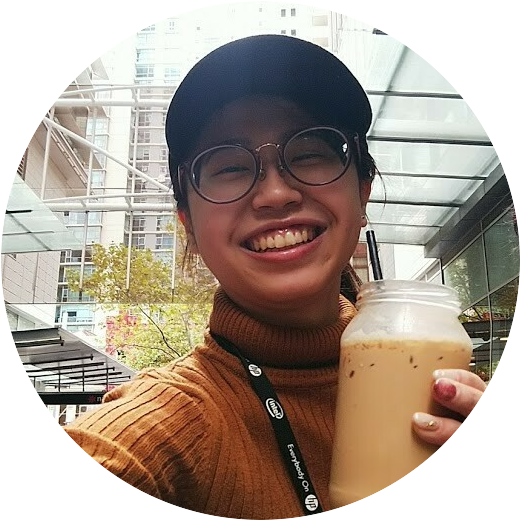KU-GLOCS is the general term referring to various globalization initiatives by Kanazawa University,
including its participation in the Top Global University Project (Super Global Universities).
KU-GLOCS
KU-GLOCS is the general term referring to various globalization initiatives by Kanazawa University,
including its participation in the Top Global University Project (Super Global Universities).
YOU & KU-SGU
Japanese students and KU-SGU
Growing into global human resources who can thrive in global society under the KU brand,
through self-improvement as individuals and as specialists.


*Study Abroad First Step Program in Bangkok, Summer (online)*
School of International Studies, College of Human and social Sciences
ITAKURA Sakura
I took part in ‘Study Abroad First Step Program in Bangkok’ in August 2021. Even though I participated in an online format due to the spread of COVID-19, the two weeks left me with a lot to learn now. I really had a great 2 weeks!
First of all, I will explain why I decided to join this program. One of the main reasons is that “Thailand” is a country that I love and cherish. Actually, my father has worked for 7 years in Thailand. Before the spread of COVID-19, I and my family visited Thailand every year. We enjoyed eating Asian food or tropical fruits and visiting Buddhist temples or World Heritage sites. However, since the pandemic began, we could not visit there and moreover we have not met my father for 2 years and more. Additionally, I entered the school of International Studies in Kanazawa University in order to study abroad but I could not imagine my future due to the pandemic. At that time, I found this study abroad program, then I decided to join it immediately. I also thought that this is the best chance for me because I didn’t have fundamental Thai knowledge such as history, language, religion, and culture.
During 2 weeks of the program, I learned about the history and culture in Thailand with students from Thailand, Indonesia, and Myanmar. I entered a world where English was the only language to communicate. It was really exciting for me. However, I gradually felt frustrated that I could not express my thoughts well. At the same time, I thought it is important to use some gestures such as facial expression, clapping hands and nodding. I was impressed that students from other countries put these things into practice.
One of the unique features of this program was the many hands-on classes! For example, I enjoyed cooking Thai salad and practicing Muay Thai. When I practiced dancing through the screen, I felt embarrassed and hesitant at first. However, I was into dancing and enjoyed it because the instructors and my buddies from Thailand were so kind and they always had a beautiful smile. I also remembered that their kindness and thoughtfulness were the attractions I had actually felt when I visited Thailand before.
The thing that inspired me the most through the program was the high level of expression and communication skills of students from overseas. As I mentioned before, even though I wanted to express my ideas or impressions, I often found it difficult to express them immediately. On the other hand, students from overseas spoke what they felt actively with confidence even thought their mother tongue must not be English. By seeing them, I told myself that I could not blame my inability to communicate for my lack of language skills. I also realized that the attitude of trying to communicate is the most important regardless of language skills. Since then, I have been more confident in myself day by day.
After the program, I created a “digital storytelling” to report what I learned in the two weeks as a post-program training at Kanazawa University. It’s a short video that tells personal experiences and impressions. I chose “smile” as my theme because I wanted to learn more about Thai “smile” as explained in the program and the reason why Thailand is known as the land of smile. I kept in touch with my buddies at Mahidol University in Thailand and they taught a lot about them to me. According to them, there are 13 kinds of smile, and each smile has different meaning. Moreover, people in Thailand always don’t forget to be smiling. In the process of making the video, I was able to learn more about Thai “smile”!
By participating in this program, I could exchange ideas, collaborate, and engage with people from all over the world on a single topic: smiles. I learned that a “smile” has different meanings between Thailand and Japan even though it looks like same. Perhaps it might have different meanings in other countries around the world. I feel that Thailand, an important country that I have made many memories with my family, has given me a broader perspective through the program. I think cross-cultural understanding is a series of such awareness. I would like to continue to challenge myself with my interests, and further expand my horizons and the world.
Finally, this work was supported by Ms. Bam and Ms. Mon at Mahidol University, my family, and friends. I would like to thank all of you for your kindness and corporation. In addition, this video is going to be posted on the website of Digital Storytelling Contest (DISTCO) organized by Houston University. I appreciate Prof. Matsuda at Kanazawa University and Prof. Dogan at Houston University to give me this grateful opportunity.
-
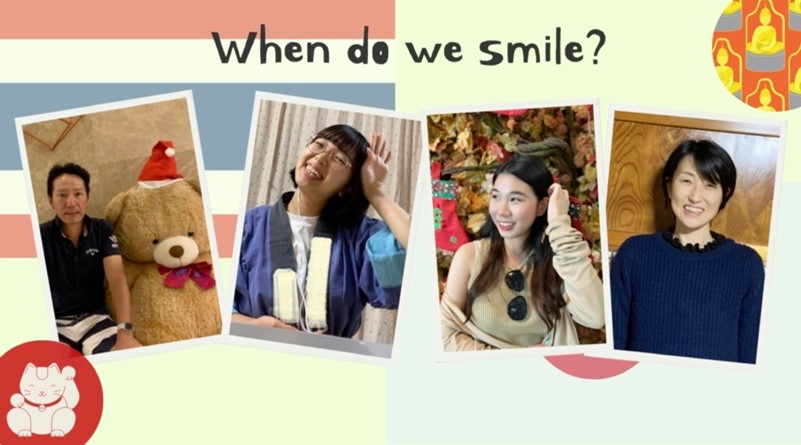
A part of my digital storytelling
-
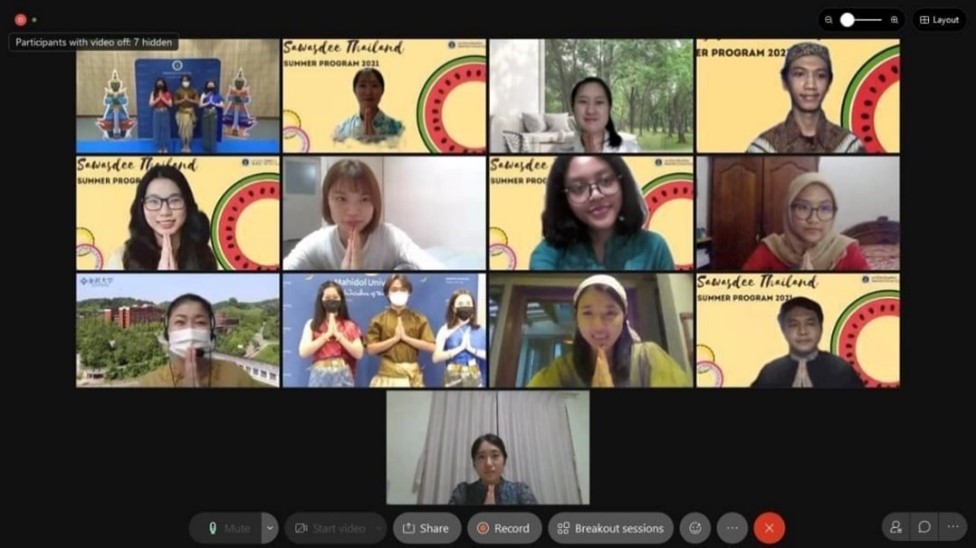
Traditional Thai greeting “Wai”
Look more other posts in this category
-
*Participation in One Young World 2023 Belfast Summit*
Division of Geosciences and Civil Engineering, Graduate School of Natural Science and Technology/KU-SGU Student Staff
IIDA Ginta -
*Participation in One Young World 2022 in Manchester*
Division of Natural System, Graduate School of Natural Science and Technology / KU-SGU Student Staff
ISHIGURO Ayumi -
*Study Abroad First Step Program in Bangkok, Spring (online)
School of Economics, College of Human and social Sciences
YAMAKADO Miku -
*HIS Internship Program in New Zealand*
School of General Education
OKUBO Fuka -
*Study Abroad First Step Program in New Zealand*
School of Health Sciences, College of Medical, Pharmaceutical and Health Sciences
NISHITA Rika -
*Study Abroad First Step Program in New Zealand*
School of Environmental Design, College of Science and Engineering
HAYASHI Yoshifumi -
*KU Study Abroad Internship Program in Malaysia*
School of Economics, College of Human and Social Sciences
SATO Serina -
*KU Study Abroad Internship Program “UEC+JAMS.TV Internship, Australia”*
School of Humanities, College of Human and Social Sciences
YAMADA Eren




